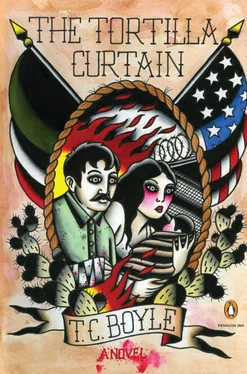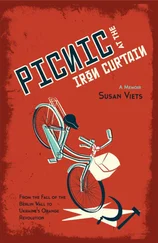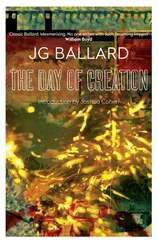T. Boyle - The Tortilla Curtain
Здесь есть возможность читать онлайн «T. Boyle - The Tortilla Curtain» весь текст электронной книги совершенно бесплатно (целиком полную версию без сокращений). В некоторых случаях можно слушать аудио, скачать через торрент в формате fb2 и присутствует краткое содержание. Год выпуска: 2011, Издательство: Penguin Books, Жанр: Современная проза, на английском языке. Описание произведения, (предисловие) а так же отзывы посетителей доступны на портале библиотеки ЛибКат.
- Название:The Tortilla Curtain
- Автор:
- Издательство:Penguin Books
- Жанр:
- Год:2011
- ISBN:нет данных
- Рейтинг книги:4 / 5. Голосов: 1
-
Избранное:Добавить в избранное
- Отзывы:
-
Ваша оценка:
- 80
- 1
- 2
- 3
- 4
- 5
The Tortilla Curtain: краткое содержание, описание и аннотация
Предлагаем к чтению аннотацию, описание, краткое содержание или предисловие (зависит от того, что написал сам автор книги «The Tortilla Curtain»). Если вы не нашли необходимую информацию о книге — напишите в комментариях, мы постараемся отыскать её.
The Tortilla Curtain — читать онлайн бесплатно полную книгу (весь текст) целиком
Ниже представлен текст книги, разбитый по страницам. Система сохранения места последней прочитанной страницы, позволяет с удобством читать онлайн бесплатно книгу «The Tortilla Curtain», без необходимости каждый раз заново искать на чём Вы остановились. Поставьте закладку, и сможете в любой момент перейти на страницу, на которой закончили чтение.
Интервал:
Закладка:
It was dark inside, dark as a hole in the ground, and when the rain slackened to a drizzle, she brought the baby outside for a breath of air. Sitting there high on the hillside, watching the clouds roll out over the canyon all the way to the sea and the cars creep like toys up the slick canyon road, she felt better. This was America and it was a beautiful place, drier and hotter than Tepoztlán in the dry season and colder in the wet, but she felt that there was peace here if only she could find it. Peace and prosperity too.
She looked down then into her daughter's face and the baby was staring past her, staring up and away into a distance she couldn't possibly contain, and it was in that moment that America felt the naked sharp claws of apprehension take hold bf her. She passed a hand over her daughter's face and her daughter didn't blink. She bent her own face to Socorro's and tugged at those dull black irises with her own and they only stared, as if there were a wall between them. And then the baby blinked and sneezed and the eyes stared at nothing.
Cándido told her they were eating rabbit, but rabbit was hard to come by up here. Those other little four-legged beasts, the ones with the bells on their collars to warn away the birds, they were easier to catch. All you had to do was wait till midnight, slip over the wall and whisper, “Kitty, here, kitty.” So they ate meat, even if it tasted stringy and sour, and they ate kibble and rice and whatever fruits and vegetables he dared to take. They had water. They had heat. They had a roof over their heads. But it was all a stopgap, a delaying action, a putting off of the inevitable. He'd stared so long and so hard at that strip of road out front of the post office, waiting for the apparition of Señor Willis's Corvair, that it wasn't a real place anymore, but a scene he'd devised in his brain-if he blinked, it wouldn't exist. There were no braceros there, not a one, and the word must have been out. Cándido didn't dare show himself and if he didn't show himself how could he get work? And if he couldn't get work, no matter how many things he borrowed from the houses beyond the wall or how many cans he collected in the bushes, sooner or later they would starve. If only he could call Señor Willis, but Señor Willis didn't have a phone. He could go back to Canoga Park, but there was no work there, he knew that already, and a hundred men ready to kill for whatever work might turn up. A little money, that was all he needed-with a little money he might think about going back to Tepoztlán, at least for the winter. His aunt might take them in, and he could always make charcoal, but América-he'd boasted to her, he'd promised her things-America would certainly leave him then, mewed up behind the gate at her father's house till she was a hag scrubbing the floors and Socorro was married off to some _chingado__ her old man owed money to.
Cándido took the risk. He waited till the rain began to crackle on the pavement and the hair hung wet in his eyes, and then he stepped out of the bushes, crossed the road and stood beneath the overhang out front of the post office, stamping his feet and hugging his shoulders to keep the circulation going. Surely somebody would take pity on him and bring him home to work in a warm basement, putting up drywall or painting or cleaning out the trash. He waited, wet through and shivering, and every _gringo__ who got out of his car and ducked into the post office gave him a look of unremitting hate. If they didn't know he'd started the fire personally, they all suspected it, and where there was once tolerance and human respect, where there was the idea of community and a labor exchange and people to support it, now there was only fear and resentment. They didn't want to hire him, they didn't want to see him warm, they didn't want to see him fed and clothed and with a place to sleep at night that was better than a ditch or a shack hidden in the weeds-they wanted to see him dead. Or no: they didn't want to see him at all. He waited there through the afternoon, and when he couldn't take the cold anymore he went into the lobby of the post office, a public place, and a man in a blue uniform stepped from behind the counter and told him in Spanish that he had to leave.
America was strange that night. He huddled next to her, trying to stop shivering, and she didn't mention going home, not once, though she'd driven him half-mad with it for the past two weeks. Now it was the baby-that was all she could talk about. The baby needed to go to a clinic, the baby needed a doctor-a _gringo__ doctor-to look at her. But was the baby sick? he wanted to know. She looked all right to him. No, América gasped, no, she's not sick, but we need to have a doctor check her-just in case. And how will we get to this doctor, how will we pay? He was irritated, feeling harassed, squeezed dry. She didn't know. She didn't care. But the baby had to have a doctor.
In the morning, Cándido put a pot of rainwater on the grill to boit-he'd run a length of PVC pipe off the development's sprinkler system, easiest thing in the world, what with the saw and the cement and all the elbows and connectors right there in the shed for the taking, but he didn't use it if he didn't have to-and he skidded down the muddy slope, keeping low to the cover, and went back to the post office. It was overcast, with a cold breeze coming down out of the mountains, but the rain had tapered off at dawn and that was a relief. Cándido leaned against the brick front of the building, watching the earthworms crawl up out of the saturated earth to die on the pavement and trying his best to look eager and nonthreatening to the _gringos__ and _gringas__ who hurried in and out the door with Christmas packages in their arms. He could hear the creek where it cut into the bank out back of the post office before whipping round to pass under the bridge and plunge into the cut of the gorge. It was a sinister sound, a hiss that rose to a roar and fell back again as a crippled tree or boulder slammed along the bed of the stream and hung up on some hidden obstruction. They would have been flooded out if they were still camped below, flushed down the canyon like waste in a toilet, battered against the rocks and washed out to sea for the crabs to feed on. He thought about that, watching the earthworms wriggling on the pavement and the postal patrons stepping delicately through the puddles as if dirtying their shoes was the worst tragedy that could befall them, and he wondered if the fire hadn't been a blessing in disguise. Maybe there was a Providence looking out for him after all.
The thought cheered him. He began to smile at the people going in and out, combing his mustache down with his fingers and showing his teeth. “Work?” he said to one woman riding up off her heels like a gymnast, but she turned away as if he were invisible, as if it were the wind talking to her. But he kept on, his smile growing increasingly desperate, until the man in the blue uniform-the same one as yesterday, a _gabacho__ with a ponytail and turquoise eyes-came out and told him in textbook Spanish that he was going to have to leave if he didn't have business at the post office. Cándido shrugged his shoulders, grinning still-he couldn't help it, it was like a reflex. “I'm sorry if I'm bothering anybody,” he said, relieved to be explaining himself, relieved to be talking in his own language and thinking that maybe this was the break he was looking for, that maybe this man would be another Señor Willis, “but I need work to feed my wife and baby and I was wondering if you knew of anything around here?”
The man looked at him then, really looked at him, but all he said was “This isn't a good place for you to be.”
Dispirited, Cándido crossed the road and shambled over the bridge in the direction of the Chinese market and the lumberyard beyond it. He'd hardly even noticed the bridge before-it was just a section of the road suspended over the dead brush of the streambed-but now its function was revealed to him as the churning yellow water pounded at its concrete abutments and the boulders slammed into it with a rumble that was like the grinding of the earth's molars-all through the summer and fall there had been no water, and now suddenly there was too much. Cándido stood for a while outside the Chinese store, though he was nervous about that, and sure enough, the old Chinaman, the one with the goggle glasses and the suspenders to hold the pants up over his skinny hips, came out to shoo him away in his weird up-and-down language. But Cándido wouldn't give up and so he stood just down the street from the lumberyard, hoping some contractor picking up materials might see him there and give him work. It wasn't a propitious place, even in the best of times, and Cándido had never seen a single _bracero__ hunkered over his heels here. Rumor had it that the lumberyard boss would call the cops the minute he saw a Mexican in the lot.
Читать дальшеИнтервал:
Закладка:
Похожие книги на «The Tortilla Curtain»
Представляем Вашему вниманию похожие книги на «The Tortilla Curtain» списком для выбора. Мы отобрали схожую по названию и смыслу литературу в надежде предоставить читателям больше вариантов отыскать новые, интересные, ещё непрочитанные произведения.
Обсуждение, отзывы о книге «The Tortilla Curtain» и просто собственные мнения читателей. Оставьте ваши комментарии, напишите, что Вы думаете о произведении, его смысле или главных героях. Укажите что конкретно понравилось, а что нет, и почему Вы так считаете.












